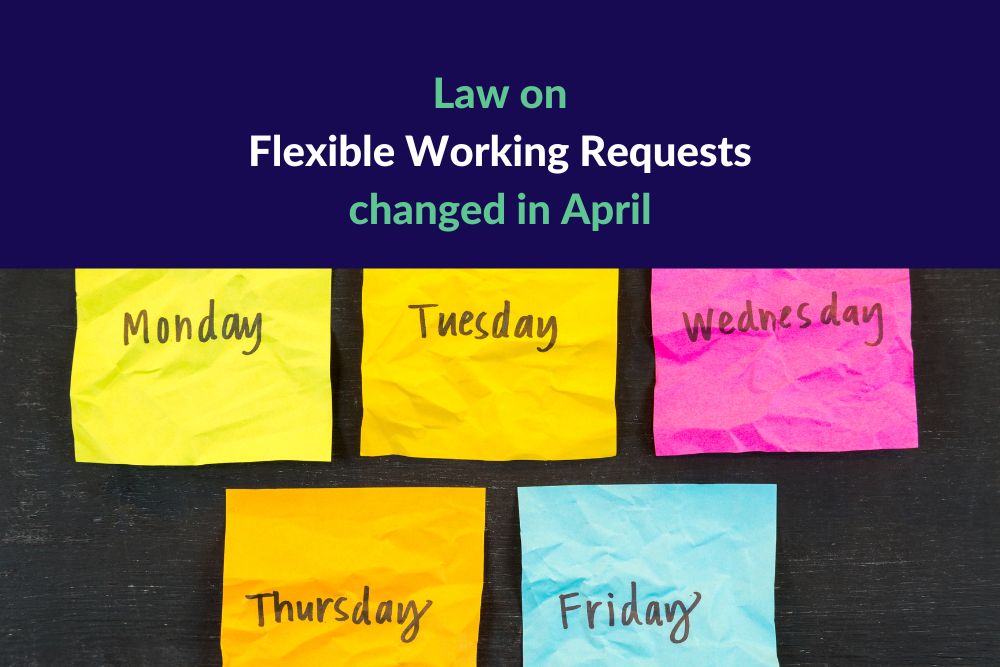Along with the usual uplifts to the minimum wage, statutory sickness pay and maternity pay, this April we also see changes to the way holiday pay can be calculated and paid for some workers, some changes to family rights, and perhaps most significantly, changes to the law on Flexible Working Requests.
From 6 April 2024 onwards, employees will have the right to request changes to their working arrangements from their very first day of employment. Previously, employees only attained this legal right after working for their employer for 26 weeks. The new changes also mean that employees are able to make two Flexible Working Requests in any twelve-month period, whereas they were previously only entitled to make one. Additionally, there will no longer be any requirement for an employee to explain what impact they foresee their requested changes will have on the employer or how such an impact can be dealt with. Under the new law, requests will have to be dealt with by employers within two months, although an extension can be agreed between the employer and employee – in which case the employer should confirm this in writing.
A Flexible Working Request from an employee may vary from a request to reduce or change working hours or days through to a request to work from home some or even all the time. Provided an employee’s request follows the legally prescribed format which is it must be a letter or email, and must state that the request is a “statutory request” and must include the date, details of how the employee wants to work flexibly and when they want it to start, and a statement saying if and when they have made a previous application, then employers are legally obliged to consider whether they can implement the requested changes. Under the new rules, employers are not able to refuse a request until they have consulted with their employee.
Whilst it is not a new change, all employers should be aware that they can only legally decline a request where there is a genuine and permissible business reason to do so. There are eight permissible reasons which allow an employer to refuse a flexible working request, such reasons including the burden of additional cost, an inability to reorganise work amongst existing staff or the detrimental impact on quality or performance.
Employers should also be aware that a decision to decline a flexible working request could be seen as being discriminatory in some circumstances, particularly where an employee is requesting the flexible working arrangements because of a disability or pregnancy, but also where someone is requesting flexibility to accommodate caring responsibilities or religious practices.
If you would like to know more about the recent changes to the law on Flexible Working Requests and how this might affect your business, you can contact our Employment Team who will be happy to assist.



